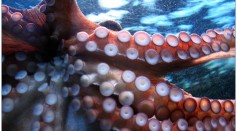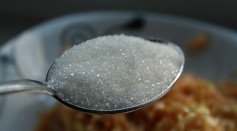taste

Foods Served in Planes Taste Bad; Here's Why

Can Taste Buds Be Trained To Embrace New Flavors? Here Are 7 Tricks To Train Your Palate

AI Food Preferences, Emotional Intelligence? Researchers Develop 'Electronic Tongue' That Mimics How Taste Affects What One Eats Based on Wants, Needs

Why Do Cats Love Tuna? Umami Taste Receptors in Felines Explained

Octopuses, Squids Taste the World Differently Based on Lifestyle Despite Having Similar Special Receptors in Suckers

Food Psychology: Color of Dishware Can Trick the Brain Into How a Food Would Taste

Extremely Rare Neurological Condition Enables 23-Year-Old Man to Taste Names, Claiming Some Are Delicious

Unborn Babies Respond to Flavors From Foods Their Mothers Eat, Study Reveals

How Do Dolphins Recognize Their Friends at a Distance? Study Suggests They Do So, Through Signature Whistles, Taste of Urine

Long COVID Symptoms Now Includes Blood Clots Along With Taste or Smell Loss and Brain Fog

Robot Chef That Cooks Omelettes Learns to Assess Taste of Dish During Chewing Process

New Insights Into the Link Between the Sweet Taste of Sugar and Regulating Satiety Revealed

How Does An Octopus Taste Using Their Tentacles
This Artificial Tongue Only Likes Authentic Whisky
Most Popular

How Technology Is Changing the Real Estate Industry?

How a Plant-Based Diet Can Protect Against Breast Cancer: Insights from Nutrition Research

Study Reveals High Turnover in Scientific Research Careers: What This Means for Future Scientists

Why It's So Difficult to Lose Weight: The Biological Explanation Behind Obesity






